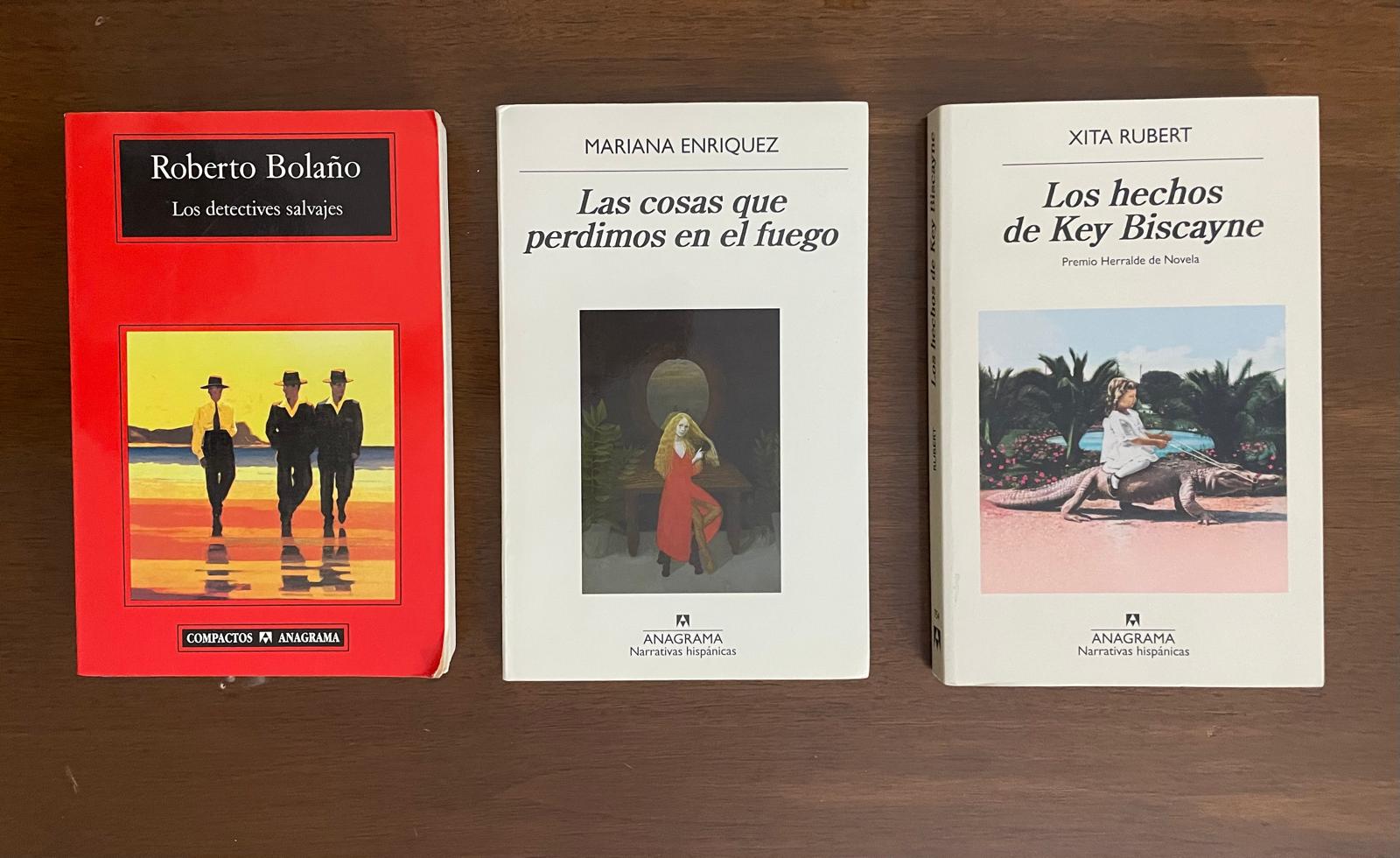
This blog post originally appeared on Book Work, a Substack newsletter run by my colleague Derek Krissoff. Versions of the Publishers Weekly article also appeared in Spanish on Zenda and in French on Livres Hebdo. Many thanks to the translators Julia Steiner (French) and Mònica Tomàs White (Spanish) as well as to the editors: Sophia Stewart (Publishers Weekly), Álvaro Colomer (Zenda), and Pierre Georges (Livres Hebdo). -JWI
In late October, I received an invitation to the party celebrating the Herralde Prize in Barcelona. I wrote to the industrious and energetic Sophia Stewart at Publishers Weekly to suggest a short article about the winners, and she immediately expressed great interest in Spanish language publishing, as a fan of Latin American literature who reads Spanish herself.
Rather than a short post on the winners and their books, she asked for a longer piece with more context on the award, which is sponsored by Editorial Anagrama, the distinguished Barcelona publishing house, to honor unpublished novels written in Spanish. As I explain in the resulting article, which can be read here, the award includes an advance and book contract and was given, most famously perhaps, to Roberto Bolaño for The Savage Detectives in 1998. Unlike the biggest literary awards in the English-language world, which recognize published books, the Herralde Prize results in a manuscript’s publication as a book.
While living in Barcelona since 2017, my publicity work has continued to focus on American clients, including a close collaboration with Derek Krissoff during his tenure as director at West Virginia University Press, and Derek and I have continued to work together in various ways for a range of clients. I imagine publicity within the US will continue to be my primary work, but I have also been eager to find ways to encourage and support Spanish and Catalan publishers, authors, and agents, so I was glad to have the chance to write the article, and am also appreciative of this opportunity in Book Work to expand on the piece.
Our acquisition strategy at this point is probably 70% solicitation, 30% contests, but that 30% means a great deal to us. And we love those authors and their books. –Jeff Alessandrelli, Fonograf Editions
As I mentioned in the PW article, what is appealing about the award system in Spain is that it offers a clear path for authors to submit unpublished work to a publisher, whether or not they have formal representation by an agent. If this model of publishers sponsoring prizes is not as prevalent in the US, or not on the same financial scale as in Spain, it is still a strategy utilized frequently in the small press and university press world. A recent success from the university press community is this year’s winner of the National Book Award in poetry, Lena Khalaf Tuffaha’s Something About Living. The book was published by the University of Akron Press after being chosen for its annual poetry prize for unpublished manuscripts in 2022. (And this is the second book on Akron’s poetry list, edited by Mary Biddinger, that has been recognized by the National Book Awards in recent years: Leslie Harrison’s The Book of Endings was a finalist in 2017.) A success like Something About Living demonstrates both approaches to prizes, with publication itself being part of the award from the University of Akron Press (in something like the Spanish model), and then the resulting book winning the National Book Award—a big, traditional US prize for titles that have already been published.
I exchanged emails about publishing prizes with Jeff Alessandrelli from Fonograf Editions, a small press and record label founded in 2015 and based in Portland, Oregon. They began publishing books in 2019 and have run five contests for unpublished work in that time.
“Running contests allows us to read the work of newer writers, ones that aren’t on our radar,” Alessandrelli said, explaining that the contests have also been a way for the press to be in touch with its readers. “Our acquisition strategy at this point is probably 70% solicitation, 30% contests, but that 30% means a great deal to us. And we love those authors and their books.”
A success like Something About Living demonstrates both approaches to prizes, with publication itself being part of the award from the University of Akron Press (in something like the Spanish model), and then the resulting book winning the National Book Award—a big, traditional US prize for titles that have already been published.
The contests have been judged by Rae Armantrout, Srikanth Reddy, and Maggie Nelson. Nelson chose Jaydra Johnson’s Low: Notes on Art and Trash, published in November, as the winner of Fonograf’s first essay collection contest. Fonograf received between 200–300 contest submissions and from there it was narrowed down to 8 finalists, which were shared with Nelson to choose. The prizes have allowed Fonograf to evolve, Alessandrelli explained, and continue to experiment.
“We will likely hold another contest of some kind in 2025, although at this point I’m not sure what it’ll be for,” Alessandrelli said, mentioning open genre or another essay prize as possibilities. “We’ve slowly expanded over time.”
